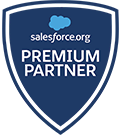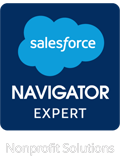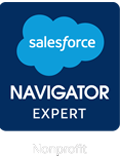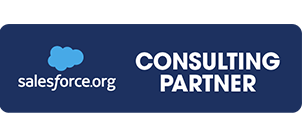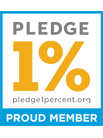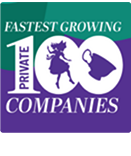Tech Evaluations - Your Roadmap to Success
In today’s world, we are constantly collecting and tracking data points. An organization may use data from several sources–donation pages, events, and digital marketing efforts. Because we are overloaded with data, it is more important than ever to have systems in place to track and manage it in a way that makes it intelligible and actionable.
The insights and guidance you gain from your data drive your mission and are integral in informing decisions throughout your organization. It allows you to personalize communication with your donors, share information with stakeholders about the success of programs, and harness insights to drive your mission.
As an organization maintains and grows its data, one of the most critical ways it can preserve data integrity is to establish structures to keep data clean with regular upkeep and hygiene. A key part of data maintenance is understanding the status of your tech stack, which is where a Tech Evaluation comes in.
When the time comes to think about updating processes, moving systems, or digging into how your solutions are structured, one of the best things you can do to prepare is to pause and ensure that your organization is positioned to succeed.
Not only could these updates mean changing processes, but they may also mean you are moving historical data, adding organizational processes, or enhancing functionality with a new tool. This can be a daunting project, so the better you can plan for this kind of transition, the better the result will be.
Why you should consider a Tech Evaluation
Imagine a chef opening a new restaurant - planning recipes, ordering food and wine, making sure there are enough napkins and servers. She would spend a lot of time planning not only the meals, but also understanding how reservations will be made, setting up a mobile ordering tool, and ensuring that there is staff to run the systems put in place. Like understanding the operational complexities of a restaurant, having a detailed audit of your existing systems and requirements for a new one are critical steps in moving to Salesforce. Prior planning prevents poor performance, after all.
Organizations are increasingly leaning into a Tech Evaluation prior to implementing a new CRM to understand what is required when moving. Failing to plan for an implementation can result in your Salesforce instance becoming a very expensive, dusty Rolodex.
What is a Tech Evaluation?
A Tech Evaluation is the assessment of your current tech stack and an analysis of how complete your existing business processes are. A Tech Evaluation will help set your organization up for success by understanding the requirements, timeline, and tools required to support your organization’s mission.
Types of Tech Evaluations
Idealist Consulting can help your organization with a few different Tech Evaluations. Deciding which type is best for you depends on organizational requirements and size.
Audit
This relatively quick assessment is intended for Salesforce instances that are actively in use and are running into small issues, such as funky reports or broken integrations, and are looking to optimize their Salesforce instance. Without an experienced database admin managing and assessing the condition of your database, it can be a challenge to find a solution.
With Idealist Consulting, an audit could include:
- Up to 20 hours of discovery work, and
- An outcome where we define what optimization looks like in the form of a support contract, or a larger Salesforce Optimization project.
Sometimes an audit reveals that the CRM is no longer meeting many of the needs of your organization. In that case, your Salesforce instance might need an upgrade and larger optimization.
To learn more about optimizations, view more curated optimization content here!
An Assessment
Sometimes an organization has a handful of departments and a limited number of stakeholders, or a legacy database and siloed solutions (i.e. e-commerce, digital marketing, etc.) that require a custom integration with Salesforce, and/or complex business processes that might necessitate Salesforce customization. Senior management has approved the project, but you want to reduce scope creep because there’s a set budget and you can’t have a lot of surprises.
The above scenario likely only requires an Assessment, which might include user stories, a Gantt chart for planning resource allocation, and a finalized Statement of Work with accurate estimates for the activities associated with the project.
Depending on several variables, an Assessment with Idealist Consulting can:
- Take anywhere between 20-60 hours, and
- Reduce time allocated to discovery during the project by as much as 75%.
Proof of Concept
For larger organizations, you will likely need to do more heavy lifting during the initiation of a project to get it off the ground. This is necessary when you have complex departmental structures, several key stakeholders, and a decision-making process requiring buy-in from senior leadership or a board of directors. In this case, a Proof of Concept will help justify the technological improvements.
The executive sponsor of a project like this often has to advocate for a major expenditure on technology infrastructure. You will be better positioned to obtain buy-in and have a successful project if you work with a consultant to develop an outline detailing the potential impact and total cost of ownership for a Salesforce implementation.
A Proof of Concept with Idealist Consulting will typically be delivered as a report or slide deck that outlines findings and breaks down project needs, sometimes visually. The Proof of Concept can include:
- Informed recommendations,
- An overall project plan, and/or
- Supporting documentation, such as a System Diagram, User Stories, and/or an Assessment Grid.
Idealist Consulting has worked with organizations of varying shapes and sizes to help them understand the current and future state of their tech stack. Get in touch with one of our experts to begin your assessment journey.










